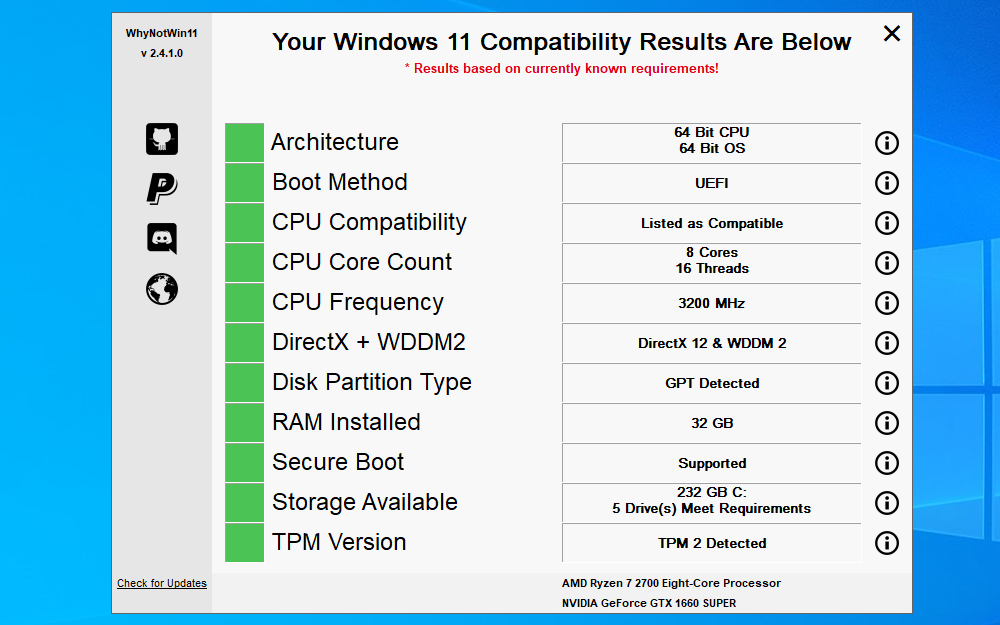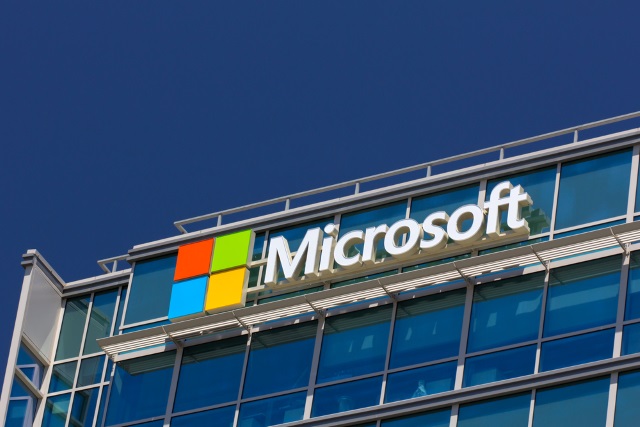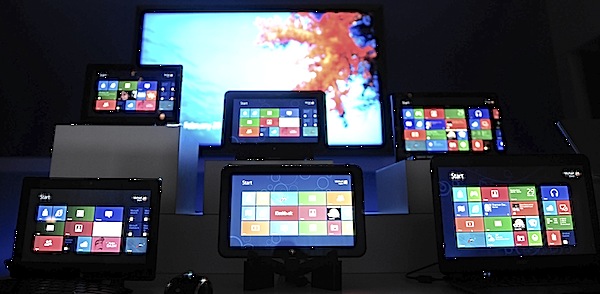
Winamp source code vanishes from GitHub
Winamp was a beloved media player for tech fans of a certain age, and there was much excitement when the software was made open source. At least it was sort of open source; restrictions on use were such that many people questioned the validity of labelling it as such when it appeared on GitHub less than a month ago.
But all of a sudden the source code is no longer available. Llama Group has now deleted the GitHub repository where the code had been published and, while there has been no official announcement made, there is speculation that the deletion came because of licensing issues with bundled codecs.

Windows 11 is rolling out from October 5 -- act now! Buy a discounted Windows 10 license and get 11 for free
Windows 11 is fast approaching -- Microsoft has just announced it’ll be rolling out from 5 October, and still we know virtually nothing about how much it’ll cost, how it’ll be supplied and whether there will be any cheap standalone deals available.
But one thing we do know: upgrades from Windows 10 will be free. So why risk having to pay big bucks for Windows 11, when you can purchase a copy of Windows 10 for as little as $49.99? Read on to find out what new features are coming, then discover how to get a risk-free Windows 11 upgrade at a price you can afford.

New app helps manage employee photo usage rights
Ensuring consent for the use of digital assets can be a bit of a nightmare. But a new solution from FotoWare ensures that employee photos are only used with the full consent of the subject, freeing content creators and managers who can quickly review, and refresh consents if usage changes.
FotoWare's Consent Management offers mobile and email based signature collection, along with searching and filtering media based on consent status.

Software producers need more flexible licensing models in order to compete
Once upon a time you bought a license for a piece of software and you could, essentially, run it forever. While much of the market has now shifted to subscription models, 65 percent of producers are still offering perpetual licenses, while 74 percent utilize subscription models for some or all of their products.
A new report from Flexera, which looks at changing licensing and deployment models, finds that when software producers are asked how they will change their monetization models over the next 18 months, both usage and subscription models will see the strongest increases.

Application developers struggle to adapt to changing licensing models
Application producers are aware of rapid change impacting their ability to make money from their software products, but they're not adopting the automated licensing and entitlement management systems that would protect them from those changes and enable them to be more agile, and grow revenues and profits.
This is the conclusion of a new report by Flexera Software which shows that producers are aware that rapid technology changes are impacting the business climate, creating new opportunity and risk.

Microsoft Q2 FY2015: The highlights
Microsoft has released its earnings report for Q2 FY2015 (that's Q4 CY2014 for everyone else), revealing figures that closely match analyst expectations. The software giant achieved $26.5 billion in revenue, with operating income coming in at $7.8 billion. Gross margin and diluted earnings per share were $16.3 billion and $0.71, respectively. However, in after-hours trading, Microsoft's shares dropped by $2, or 4.28 percent, to $45 per share.
Microsoft has delivered some good news through its earnings report concerning its Devices and Consumer part of the business. Surface revenue reached $1.1 billion at the end of the quarter, which translates to a healthy increase of 24 percent over Q2 FY2014. Lumia sales topped 10.5 million, which, again, is better than the same quarter from a year prior as well as the previous quarter, Q1 FY2015. And the list goes on.

Most businesses waste money on 'shelfware' that’s never used
Almost two-thirds of companies plan on freezing or shrinking their software spend and 96 percent of organizations report that they're wasting money on software that is unused.
These are among the findings of a new report by Flexera Software in conjunction with IDC which looks at pricing and licensing. The biggest concern is that almost all businesses have "shelfware" that is never used.

Microsoft announces Office 365 Personal -- renames 'Home Premium' to 'Home'
Office 365 Home Premium is a great value product for families. For the Leave It To Beaver market, it is a great way to save money as it provides five licenses. Wally, Beaver, Mom and Dad can all have Microsoft Office for a paltry $99 per year. Hell, they can give Eddie Haskell the extra license.
However, what about the lonely bachelors and single ladies of the world that do not need five licenses? Maybe a person only owns one computer and only needs one license. It is a sin to pay for five licenses and have four go to waste. Today, Microsoft announces a new option for the Juan Pablo's of the world -- Office 365 Personal. It offers potential cost savings to individuals.

Creative Cloud is Adobe's future (and yours, too)
No one rightly can accuse Adobe of playing the ostrich, digging in and pretending the cloud isn't changing the market for desktop software. The developer of popular publishing tools like InDesign and Photoshop takes huge risks that will either make or break future revenue. A year ago, Adobe unveiled the Creative Cloud subscription service. Today, in Los Angeles, the company rebranded CS suite as CC and moved all future features, updates and versions to the cloud subscription service. You want new Photoshop, Adobe will take your money monthly, baby.
I cannot understate the risk taken here, as Adobe delivers double-whammy to customers. Changing an iconic brand is trouble enough -- how people pay and what for, even more so. But the CC (for Creative Cloud) also demarks change, break from the old model for the new. With risks come rewards.

Microsoft Windows sales are so good, they're scary
The "Microsoft's dead" meme is one of the most popular among tech bloggers and arm-chair pundit commenters. Posts are everywhere the last 30 days or so, fed this month by reports of record-weak PC shipments. After market close yesterday, with fiscal Q3 results, Microsoft proved critics wrong and showed just how much strength remains in the Windows franchise. More significantly, a dramatic change is underway, regarding which buyers generate more revenues.
IDC says that PC shipments fell 13.9 percent during calendar first quarter (Microsoft's fiscal third), and there was reasonable expectation Windows license sales would see similar fall off. Instead, when removing a one-time $1.085 billion deferral, Windows & Windows Live division revenue was flat ($4.62 billion) year over year. Given the sorry state of the PC market, flat isn't just good but great.

Will you buy Windows 8?
I told you so back in February that Windows 8 would debut in October -- not that it was rocket science to me. Nevertheless I wrote: "Windows 8 must RTM by end of August to make October launch, which is best timeframe assuring the channel is stocked for Black Friday". Today, Microsoft revealed that its next-generation operating system would release to manufacturing in early August and be available at retail in October.
Microsoft's timing is sheer brilliance. We already know that Surface tablets will ship simultaneously with Windows 8, and OEMs have shown off a boatload of new models coming for the holidays. Apple plans to release OS X Mountain Lion this month, perhaps in days. Anyone considering a shiny new Mac suddenly has reason to wait. Will Surface or Windows 8 slates be worth the wait? Mountain Lion's user interface is oh-so yesterday, while Windows 8 Metro is oh-so tomorrow -- well, for anyone who actually likes it. Now that we know when, it's time to ask if you will buy. That's a question you can answer in comments and the poll below the fold.

Microsoft enterprise licensing changes favor Windows RT, put Android and iOS in their place
If you can't beat them, manage them. It's a strategy that has worked well for Microsoft in the past, and it is emerging as a key element in announcements last week about how Microsoft will license Windows 8 in all its variations, including the x86 consumer, Professional and Enterprise editions, the embedded Windows RT and the cloud-based Windows Intune.
While Microsoft's primary goal is to stop Apple's growth in the enterprise, which it will do by tilting licensing policies in favor of Windows tablets, the company has a Plan B that will help monetize Apple and Android devices in the enterprise through management.
